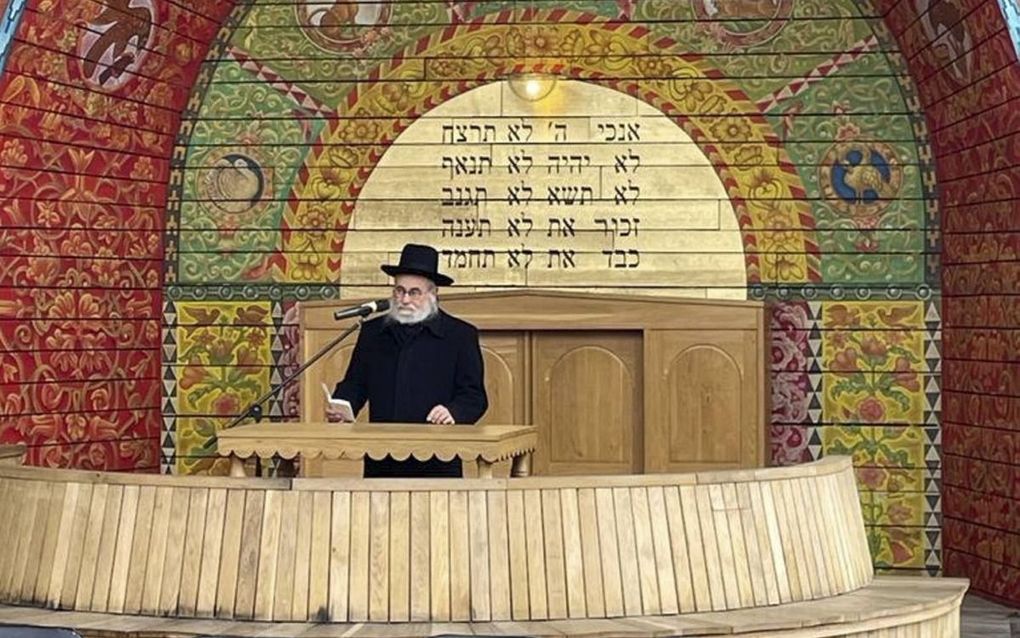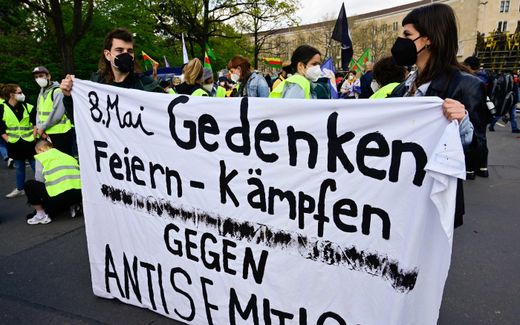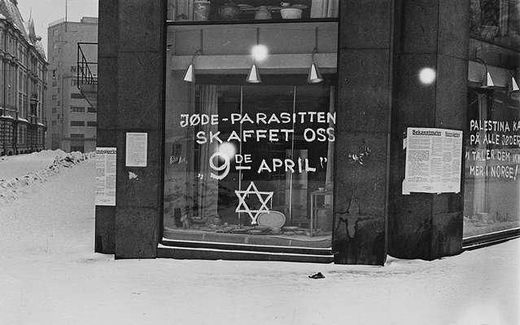Dutch Rabbi: Antisemitism is indestructible because it is hate without reason
27-01-2022
Western Europe
L. Vogelaar, RD

Dutch chief rabbi Jacobs during the memorial in Babi Yar. Photo RD
Western Europe
Antisemitism does not increase. "It has never been gone. It only becomes more visible", says the Dutch chief rabbi Jacobs. That is why remembering the Holocaust is crucial, according to him.
Jacobs returned from Ukraine on Tuesday night. There he was present at a remembrance ceremony in a synagogue that was opened in April. The building is close to Babi Jar, the hill where many Jews – even up to 250,000 in total – were shot. "2.5 million Jews are killed by bullets. That number is even higher than the number of victims of the gas chambers. The soldiers needed to be careful and accurate because they were not supposed to use more than one bullet per adult. Mothers were shot, and their living babies fell to death with them from the cliff."
After the war, the Soviet Union remained silent about the mass killings. "For a long time, there was no visible sign of what happened. Now there is a centre of remembrance in the making. It includes a synagogue where people can pray for the rest of those killed. However, family members of the victims are barely there, because almost all were killed as well. Therefore, I prayed the Kaddish."
Back in the Netherlands, Jacobs pays attention to the annual Day of Remembrance of the Holocaust. "We do not only remember the persecution of the Jews far away but also close by. 102,000 Jews were sent via Westerbork to the camps of destruction and never returned."
The parents of Rabbi Jacobs survived the war in hiding places. "My mother stayed at a good place, but my dad suffered hunger oedema because his hiders traded the ration cards for food on the black market. Because of hunger, he ate peels and mice. After the war, people suggested that my dad should charge his hiders. But he said: Those people did save my life."
Jacobs' parents barely spoke about that period. "My generation was protected against the sufferings of our parents. Often survivors told their grandchildren more about their griefs. Sometimes I heard from my children what my parents had told about the war."
In the meantime, history shaped his life anyways. "We lived in the shadow of the war. I have a feeling for rhythm and would have liked to play the piano. But from my grandma, I had to take violin lessons. The reason was that uncle Jozef played the violin. He was a Jewish resistance fighter and was betrayed and killed."
Telling and remembering the past remains important, the chief rabbi says. "To never forget the victims. And to prevent it from happening again."
He does not think that antisemitism will be abolished. "That will never disappear. Because it is hate without reason. It is said that there was envy because the Jews were rich. But in Poland, Jews were poor. Jews would have had all the power. But the Nazis killed the psychiatric patients in the mental hospital Apeldoornsche Bosch as well. Jews would have isolated themselves. But in Germany, they assimilated greatly."
Antisemitism is indestructible, Jacobs says. If that disheartens him? "That is not how I am. I try to do whatever I can. For part of the people, education takes away most of their hatred. However, schools in the Netherlands only pay very little attention to the Holocaust. We have to keep on telling what happened."
This article was translated by CNE.news and previously published in Dutch daily Reformatorisch Dagblad on January 27th, 2021.
Related Articles




![During a state of emergency in Trøndelag from 6 October 1942, all male Jews were arrested by the Norwegian order police. They were interned in SS-Strafgefangenenlager Falstad outside Levanger . [106]](https://images.cne.news/fill/crop:1992:1245:sm/w:520/plain/s3%3A%2F%2Fcne-prod-s3-001%2FFalstad_1945_6260599608_8b75464012.jpg)
